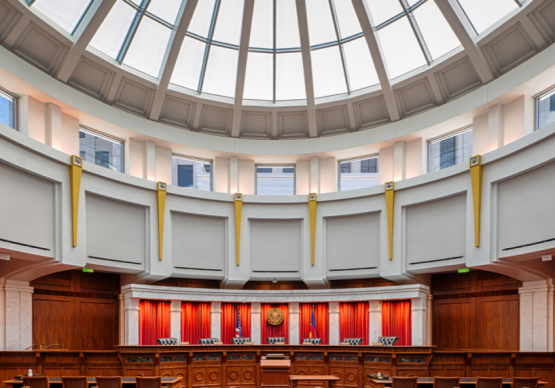- Probation
-
Self-Help and Forms
Home
Welcome to the
Colorado Courts and Probation
General Content Search API Homepage

Self Help and Forms by Topic
Find information about a variety of legal needs
Find your courts
Enter your city or county to find your county court locations.
Helpful Resources



Colorado's Courts

The Colorado Supreme Court is the state's court of last resort. Its decisions are binding on all other Colorado state courts.
The Supreme Court is composed of seven justices who serve ten-year terms. The Chief Justice is selected from the membership of the body and serves at the pleasure of a majority of the justices. The Chief Justice also serves as the executive head of the Colorado Judicial System and is the ex-officio chair of the Supreme Court Nominating Commission. The Chief Justice appoints the Chief Judge of the Court of Appeals and the Chief Judge of each of the state's 23 judicial districts and is vested with the authority to assign judges (active or retired) to perform judicial duties.

The Colorado Court of Appeals is the state's intermediate appellate court. As of July 1, 2008, the Court consists of 22 judges who are retained by the public to serve eight-year terms. The Court sits in three-member divisions to decide cases. The Chief Judge, appointed by the Chief Justice of the Supreme Court, assigns judges to the divisions and rotates their assignments. The mission of the Court of Appeals is to provide the citizens of Colorado with clear, impartial, and timely resolutions of appealed orders and judgments as provided by law. The Court of Appeals was created by statute; accordingly, jurisdiction is limited to the areas specified by state statute, together with the inherent powers granted to all courts.

District Courts hear civil cases in any amount, as well as domestic relations, criminal, juvenile, probate, and mental health cases. District court decisions may be appealed to the Colorado Court of Appeals (in some cases directly to the Colorado Supreme Court).
County Courts handle civil cases under $25,000, misdemeanors, traffic infractions, felony complaints (which may be sent to district court), protection orders, and small claims. County court decisions may be appealed to the district court.

The Water Right Determination and Administration Act of 1969 (the "1969 Act") created seven water divisions based upon the drainage patterns of various rivers in Colorado. Each water division is staffed with a division engineer appointed by the state engineer, a water judge appointed by the Supreme Court, a water referee appointed by the water judge, and a water clerk assigned by the district court.
Water judges are district judges appointed by the Supreme Court and have jurisdiction in the determination of water rights, the use and administration of water, and all other water matters within the water division.

Our Mission
The Judicial Department works to provide equal access to Justice, contribute to public safety, and strengthen the rule of law across Colorado. Together our courts and probation departments are committed to impartial and timely dispute resolution; support for families, litigants, and victims; client rehabilitation; and meaningful community engagement.

 Colorado Judicial Branch
Colorado Judicial Branch